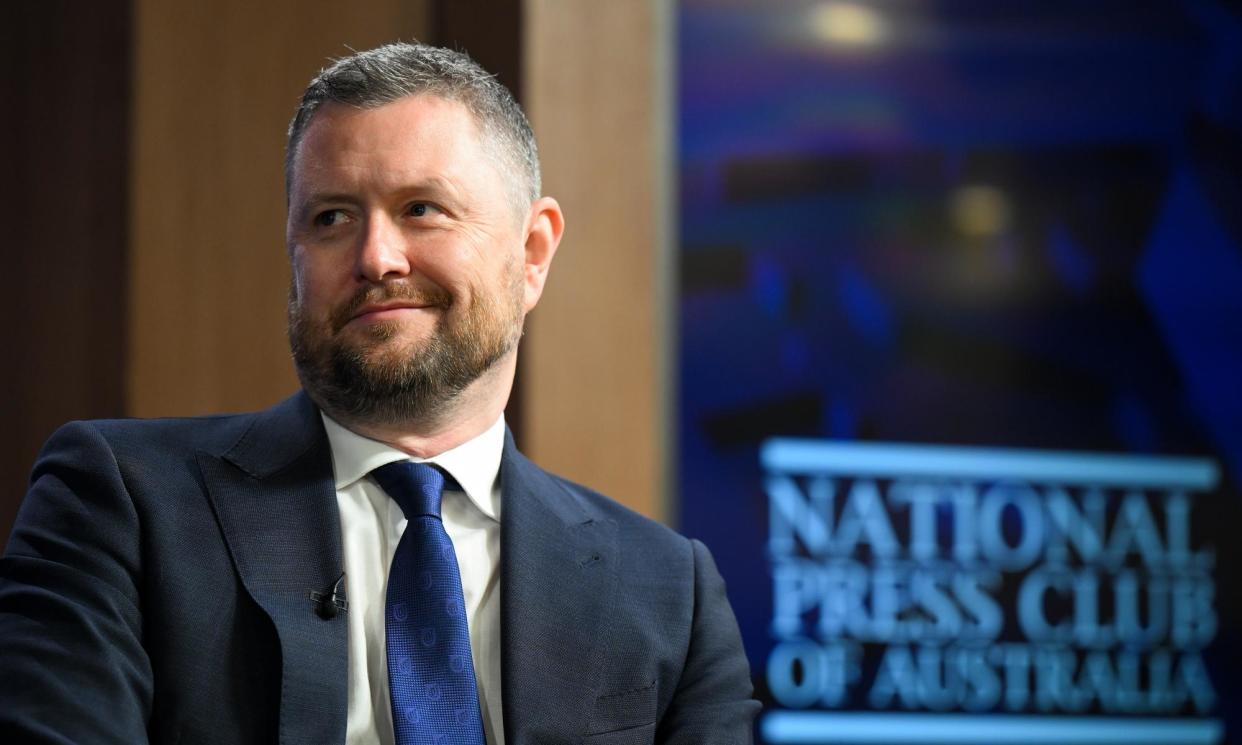Universities say they are being treated like ‘political footballs’ in scathing critique of Labor’s student cap

The chair of Universities Australia will accuse both sides of parliament of using the tertiary education sector as a “political plaything” in a scathing critique of Labor’s proposed international student cap.
Speaking at the National Press Club on Wednesday, Prof David Lloyd will call the decision to cap international student enrolments at a maximum of 270,000 the most “extraordinary intervention” by a government into universities since the Morrison government vetoed six Australian Research Council (ARC) grants in 2021.
“No other major export industry is treated the way international education is right now,” Lloyd will say. “Not mining, not agriculture, not tourism – none of them.
“Imagine how economically self-destructive it would be for the government to ban shiploads of iron ore from leaving our ports, yet that is exactly what it is doing to our higher education sector.”
The peak body for the tertiary education sector has estimated that between December and 30 June, the government’s ongoing crackdown on international students has already cost the economy $4.3bn.
It has projected the latest policy will put 14,000 university jobs at risk – akin to a “sledgehammer” on the international education sector.
Higher education commentators including Abul Rizvi and Prof Andrew Norton had projected international student numbers would naturally reduce without the cap, as a result of nine previous migration policy changes, as well as an anticipated drop-off in student intake following a bottleneck when Covid restrictions eased.
Lloyd will accuse both major political parties of placing universities at the centre of a national debate for “political rather than policy purposes”, risking undermining the sector as it battles to recover from the pandemic and historically low funding levels.
Australian government investment in research and development (R&D) as a percentage of GDP is at its lowest level on record: in 2022 and 2023, Lloyd will point out, two-thirds of publicly funded universities were in deficit.
At the same time Labor has issued an overall tertiary attainment target of 80% of working-aged people by 2050. Lloyd will project that meeting the target could add around $240bn to the economy, but flag that it follows a decade of changes to higher education policies that have resulted in funding shortfalls of billions of dollars.
Related: Why are university degrees in Australia getting more expensive, and how much will they cost?
“The last seven years, the majority under a Coalition government, have been particularly difficult,” Lloyd will say.
“Elected officials have directly intervened in what were independent, peer-reviewed research grant processes and now, just as we enact a research-enabled recovery from a pandemic, they are using international students as scapegoats to blame the housing crisis on.
“This poll-driven attack on a major component of our sector has once again put universities on the front pages of newspapers and at the top of news bulletins for all the wrong reasons.”
Lloyd will accuse Labor of unnecessarily using international students as “cannon fodder” in a “poll-driven battle” to “neutralise” perceived political damage from high migration rates.
“Before the spectre of caps arose, visa grants in higher education had already dropped 23% – the equivalent of 59,410 students – in the past year,” he will say.
“Labor has since passed legislation to, in the words of education minister Jason Clare, end the days of using the ARC as a political plaything.
“But ironically, universities are squarely once again a political plaything.”
Clare labelled the proposed cap a “fairer way” to manage international education that would particularly benefit regional universities impacted by visa processing delays.
Speaking on Sky News on Sunday, he said the policy was unapologetically and “fundamentally based on returning migration to pre-pandemic levels”, adding the cap would both protect the integrity of the system and “community support for it”.
But in an appeal to both major parties, Lloyd will label the next federal election as a “fork in the road”, drawing on historic reforms made by former prime ministers Robert Menzies and Bob Hawke in support of the sector.
“For both major parties, it looms as a choice between providing bipartisan support and encouragement for higher education or treating universities as political footballs in the electoral game,” he will say.


